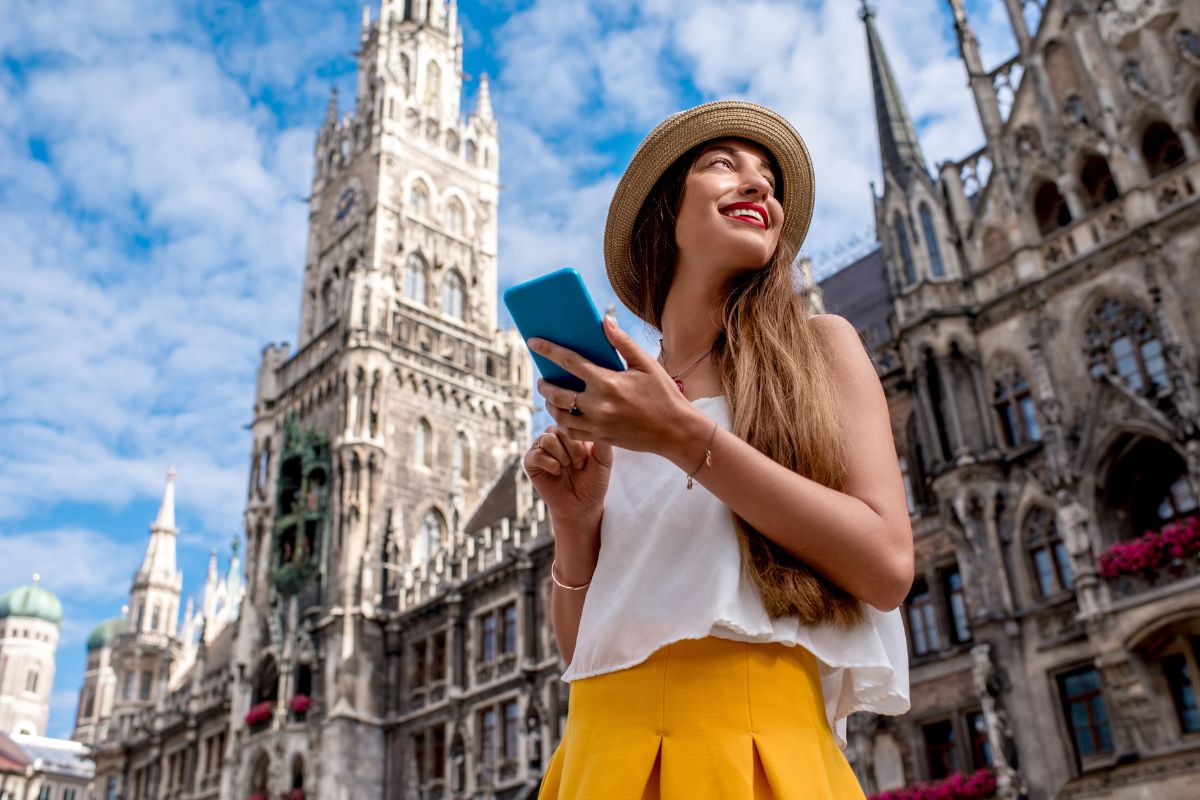How to Overcome Fear of Traveling Alone

Traveling solo for the first time can feel intimidating, but most fears are manageable with the right preparation and mindset. Experts note that people’s fear of traveling alone can be “unnecessarily paralyzing,” yet it’s usually based in issues that can be addressed. In reality, solo trips often become empowering adventures rather than sources of anxiety. This guide shares practical tips, safety advice, and encouraging insights to help new solo travelers gain confidence and embrace the journey.
Why Solo Travel is Worth It
A solo traveler takes in a stunning view, enjoying the freedom and independence of exploring alone. Solo travel offers huge rewards in personal freedom and growth. Many travelers report that going it alone boosts confidence and independence, since you solve challenges on your own. You can make decisions without compromise (choosing where to eat, sleep, and explore at you), and you may end up meeting more people, not fewer – solo travelers often strike up conversations and friendships precisely because they’re traveling alone. As one traveler put it, enjoying “time with yourself is a luxury” that teaches you about your own strengths. In short, solo trips can be confidence-building adventures.
-
Freedom & Flexibility: You call the shots – set your own schedule and follow your interests. No one else’s preferences hold you back.
-
Personal Growth: Navigating unfamiliar situations forces you to adapt and learn. Many find they return home more confident, resourceful and self-aware than before.
-
Making Connections: Solo travel can be social. Travelers often meet new friends on the road – ironically, many solo travelers report they are rarely lonely, since they strike up conversations and join group tours or hostel events.
-
Self-Discovery: Being alone forces quiet moments of reflection. You learn what you really enjoy doing and realize you can handle more than you thought. (One traveler notes she realized “I’m not as afraid as I thought” after her first solo trip.)
-
Cultural Immersion: You can fully engage with a new culture on your own terms, trying local foods and experiences that matter to you most.
Common Fears and Misconceptions
Even confident people have worries before a first solo trip. Safety is a top concern – it’s natural to fear crime or accidents without a travel buddy. Others worry about loneliness or awkwardness (e.g. eating dinner alone or feeling isolated). There may be anxiety about navigating logistics on your own – lost luggage, language barriers, or unexpected problems. A smart first step is to name each fear and see if it’s realistic. Often, the things we worry about (pickpockets, missed connections, feeling bored) can be planned for or avoided.
Key worries include:
-
Safety/Security: Fear of crime or accidents. (You can reduce this by researching safe areas and using common-sense precautions.)
-
Loneliness or Isolation: Concern about feeling alone or out-of-place. (In reality, many solo travelers quickly meet fellow tourists or friendly locals.)
-
Logistics and Language: Anxiety over getting lost, handling money, or not speaking the language. (Gradual exposure – like starting with a short solo outing – can build confidence.)
-
Social Self-Consciousness: Worry about looking strange dining or sight-seeing solo. (As one guide notes, standard restaurant meals are just one option – you can also grab takeout, picnic, or join group activities.)
-
Health and Emergencies: Worries about illness or accidents. (Getting travel insurance and knowing local emergency contacts can ease this fear.)
Remember that most travel fears never materialize. A seasoned solo traveler advises, “most of what we worry about… never comes to pass anyway. Focus on the adventures, the good times… The biggest step is just to make the decision”. In other words, don’t let “what if” thoughts hold you back – prepare as much as you can, then step out of your comfort zone.
Psychological Strategies to Manage Anxiety
Your mindset plays a huge role in overcoming fear. Here are some mental strategies that help many solo travelers:
-
Name and Challenge Negative Thoughts: Write down what scares you (safety, loneliness, etc.) and ask yourself how likely each worst-case scenario really is. Cognitive-behavioral approaches (like keeping a thought diary) can help you replace “I’ll never be safe alone” with more balanced thoughts.
-
Gradual Exposure: Start by doing small things alone. For example, take yourself out to a movie or café in your hometown, or do a short solo weekend trip nearby. As one traveler did, practice by visiting a local museum and then taking an overnight to a familiar city. Each small success expands your comfort zone.
-
Prepare and Visualize: Thorough research is empowering. Study your destination in advance (maps, customs, common sights) so fewer things are unknown. Make a simple plan or list of “what ifs” (e.g. What if I get lost? I’ll have my phone with maps and local SIM). Also try positive visualization: imagine enjoying the trip – walking on a beach or chatting with new friends – rather than dwelling on anxieties. This positive mindset can calm nerves.
-
Mindfulness and Grounding: Techniques like deep breathing, focusing on your senses, or simply reminding yourself “this feeling will pass” can keep panic in check. When anxiety peaks, try counting breaths or naming things you see/hear around you to stay present.
-
Set Realistic Expectations: Accept that not every moment will be epic. As one traveler advises, “setting realistic expectations – which probably means lowering them – helped me overcome my fear.” Not every day will be perfect, and that’s okay. Remember you’re building skills and memories with each step.
Above all, be kind to yourself. If fear creeps up, take a moment to ground yourself or talk through it. Many solo travelers (even experienced ones) had butterflies before their first trip and then found those nerves subsiding once they were on the road.
Practical Preparation Tips
Good planning can turn fear into confidence. Here are concrete steps to prepare for your solo trip:
-
Thorough Research: Learn about the destination’s culture, customs, and basic language. Read travel forums or guidebooks, and use mapping tools (Google Street View is great for virtually “walking” the neighborhood of your hotel). Knowing what to expect (transport schedules, typical costs, local etiquette) eases uncertainty.
-
Create an Itinerary: Plan at least your first day or two (how to get from the airport, where you’ll sleep). Book your first few nights in advance so you have a concrete place to go. Pre-arrange airport transfers if possible – arriving in daylight with a confirmed ride can feel much safer. Share your itinerary and booking details with a friend or family member.
-
Stay Connected: Give loved ones a copy of your plan and schedule regular check-ins. Use apps (like WhatsApp or map-sharing apps) to let someone track you when you travel. Carry a portable phone charger so you’re never without power. Knowing someone back home knows where you are is reassuring for everyone.
-
Documents and Insurance: Make photocopies or digital photos of your passport, visas, tickets, and insurance papers. Pack these copies separately from the originals. Buy comprehensive travel insurance before you go – it’s especially important when traveling alone. Insurance can cover lost baggage, medical emergencies, trip cancellations, and even medical evacuation, giving you and your family peace of mind.
-
Learn Key Phrases: Even a few local words can help. Memorize how to say “help,” “police,” “doctor,” or “emergency”. Download a translation app or carry a phrasebook. This simple step can make you feel more prepared if you need assistance.
-
Pack Smart: Travel light and only bring essentials. Important items include any prescription medications (plus a note from your doctor), a basic first-aid kit, and versatile clothing layers. A lightweight scarf or shawl can serve multiple purposes (sun protection, modest cover, even a makeshift bandage). Also pack a money belt or pouch to keep cash and cards hidden.
-
Practice Locally: Do a test-run of solo activities at home. Go for a short hike or a day trip by public transit. As Kathleen suggested, try spending a day on your own in a familiar city – go to a museum, have lunch at a café, chat with locals – to build comfort. These small adventures at home boost confidence for farther journeys.
Being well-prepared eliminates many common worries. As one traveler noted, she always ensured “my flights arrive during the daytime and [I] find out how to get from the airport to my accommodation in advance… so I know exactly where I’m going upon arrival.”. Little measures like that add up to feeling much safer.
Solo Travel Safety Tips
Safety is always important, whether you’re alone or with others. Use common-sense precautions to keep yourself secure:
-
Stay Alert: Keep your head up and senses sharp. Don’t walk around with headphones in both ears or stare at your phone map while crossing a street. Situational awareness is your best defense. If something feels off (a stranger following you, a dark alley, etc.), trust your instincts and move to a safe spot.
-
Blend In: Dress modestly and like the locals; avoid flashy clothes, jewelry, or obvious signs that you’re a tourist. Keep valuable items (camera, phone, wallet) out of sight. Use a secure bag (a crossbody bag or money belt is best) and zip it closed. When dining or sitting, choose spots where you can see the entrance and watch your belongings.
-
Secure Belongings: Many hostels and hotels provide lockers or safes – use them to store passports, extra cash, and other irreplaceables. When in your room, you can also block the door with a wedge or cloth to prevent intruders. If you lose something, having a copy of your passport can help you get a replacement more easily.
-
Choose Reliable Transport: Book taxis or rideshares (Uber/Lyft) rather than hailing on the street, especially at night. Wait indoors until your car arrives and verify the license plate and driver’s name. Sit in the backseat so you can exit either side, and share your ride status with a friend via an app. Always wear a seatbelt when available.
-
Stay Connected and Informed: Keep someone back home updated on your whereabouts. Use apps or features that share your real-time location with trusted friends. Learn the local emergency numbers (they may not be 911) and know the address of your country’s embassy or consulate.
-
Trust Your Gut: If a situation or person makes you uneasy, leave. Solo travelers often find that most locals are kind (one traveler reported that strangers in Japan and Myanmar helped her when lost), but it’s always okay to walk away if something feels wrong.
-
Health and Scams: Drink responsibly and keep an eye on your glass in bars (drink spiking can happen anywhere). Avoid obvious tourist scams (e.g. fake petitions, overpriced cabs). Learn about common scams in your destination before you go.
-
Stay in Public Spaces at First: Especially on your first day, stick to well-populated areas. If you feel anxious arriving in a new city, consider taking a daytime walking tour or joining a group activity. This “buddy system” approach reduces isolation and lets you meet other travelers safely.
By combining these safety habits with your preparation, you’ll minimize real risks. As Zurich Insurance’s travel expert reminds us, staying informed and vigilant (along with having good insurance) lets solo travelers enjoy their adventures with confidence.
Real Stories and Encouragement
Hearing from other solo travelers can be inspiring. For example, Alex (age 29) realized “if I didn’t go by myself, I wouldn’t get to go at all,” so she faced her fear and booked a trip. In the end “it turned out to be such an incredible trip, and I met so many people” that she became a near-permanent solo traveler. She reflects that solo travel taught her she’s “more confident and more aware of all the great qualities that I have”.
Another traveler, Isabella (age 25), overcame her initial fear after realizing “kindness itself is a universal language.” Locals in Japan and Myanmar helped her when she was lost or hurt, and those experiences “helped me overcome my fears and become braver”.
These real-world examples show common themes: start small, plan carefully, and give yourself credit for each achievement. As one seasoned solo traveler advises, solo travel doesn’t require superhuman bravery – it’s often about taking one step at a time. She writes, “If I’m brave enough, you’re brave enough too. You just might need a little practice.”.






